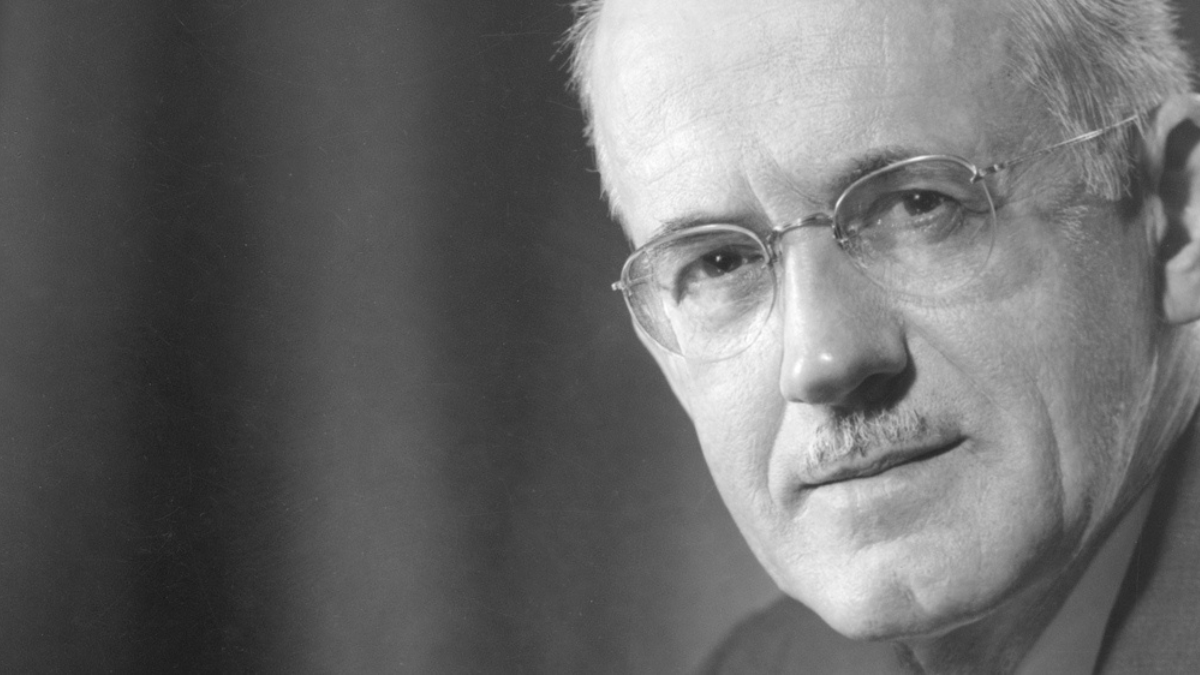

Chuck Colson on Tozer’s Knowledge of the Holy
Why it’s important to take stock of who you really think God is.
11/24/23
John Stonestreet Chuck Colson

In November of 1928, A.W. Tozer accepted a pastoral position at the Southside Alliance Church in Chicago, a move that launched a ministry career that would eventually impact thousands. A central theme of Tozer’s work was recovering a sense of the holiness of God. In his book The Knowledge of the Holy, Tozer wrote,
The low view of God entertained almost universally among Christians is the cause of a hundred lesser evils everywhere among us. A whole new philosophy of the Christian life has resulted from this one basic error in our religious thinking.
Tozer’s best-known quote is a fundamental premise of a truly Christian worldview: “What comes into our minds when we think about God is the most important thing about us.”
Years ago, Chuck Colson urged his friend, author and speaker Ken Boa, to write condensed, accessible introductions to the greatest works of literature and theology. Boa, one of the finest Christian thinkers of our generation, accepted the challenge.
In a Breakpoint commentary, Chuck commented on A.W. Tozer’s The Knowledge of the Holy, and Dr. Ken Boa’s introduction:
Dr. Ken Boa speaks of A.W. Tozer as a man who “understood the ways of God.” That understanding is amply demonstrated in Tozer’s classic book The Knowledge of the Holy.
“This is really a meditative and a devotional approach to the attributes of God,” Boa says. Those include more attributes than we’re used to thinking about all at once. For instance, Tozer discusses God’s omniscience and omnipotence as well as His love and mercy. But Tozer doesn’t just show us the reality of those attributes; he also shows how they work together to form a harmonious whole. They are not contradictory, but complementary.
But our view of God, Tozer argues, is often “distorted” or “diminished” because we have embraced the prevailing mindset of our culture and imposed that mindset upon Scripture. So, we find ourselves unable even to begin to comprehend concepts like His holiness, power, and majesty. (Keep in mind, by the way, that Tozer wrote this nearly 50 years ago. The man wasn’t called a prophet for nothing.)
Tozer’s desire was to expand our vision and thus our capacity to worship God rightly. If we fail to do this, Boa says, that’s when our understanding of God becomes distorted, and we move away from Him. “Imperfect and ignoble thoughts about God,” Tozer believed, are responsible for all our errors in doctrine and in faith. Thus, he defines idolatry as “assuming that God is other than He is.”
When you look at it that way, you can see just how widespread idolatry has become in our day and how much havoc it has created within the Church. Boa connects this kind of thinking to the modern prosperity gospel, which tends to turn our prayers into “strategy sessions” rather than true communication with God. Paradoxically, Tozer acknowledges the “incomprehensibility” of God, even as he is helping us to better understand His attributes. When we draw closer to God, you see, we begin to understand just how much greater He is than anything we can grasp.
Our instinct is to make God into something “manageable” and “controllable.” That was the sin of the Garden—to be like God. But if you could do that, you wouldn’t need Him. So instead of trying to manage or control God, we must surrender ourselves and place our trust in Him even though we can’t fully understand Him. And when we do this, we are not groping in the dark, for as Tozer tells us, “[God] in condescending love has by revelation declared certain things to be true of Himself. These we call His attributes.” He has provided enough knowledge of these, Tozer says, “to satisfy our intellects and ravish our hearts.”
For more resources to live like a Christian in this cultural moment, go to breakpoint.org.
Have a Follow-up Question?
Up
Next

Related Content

© Copyright 2020, All Rights Reserved.













